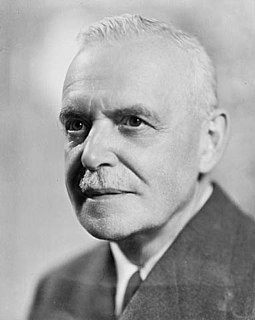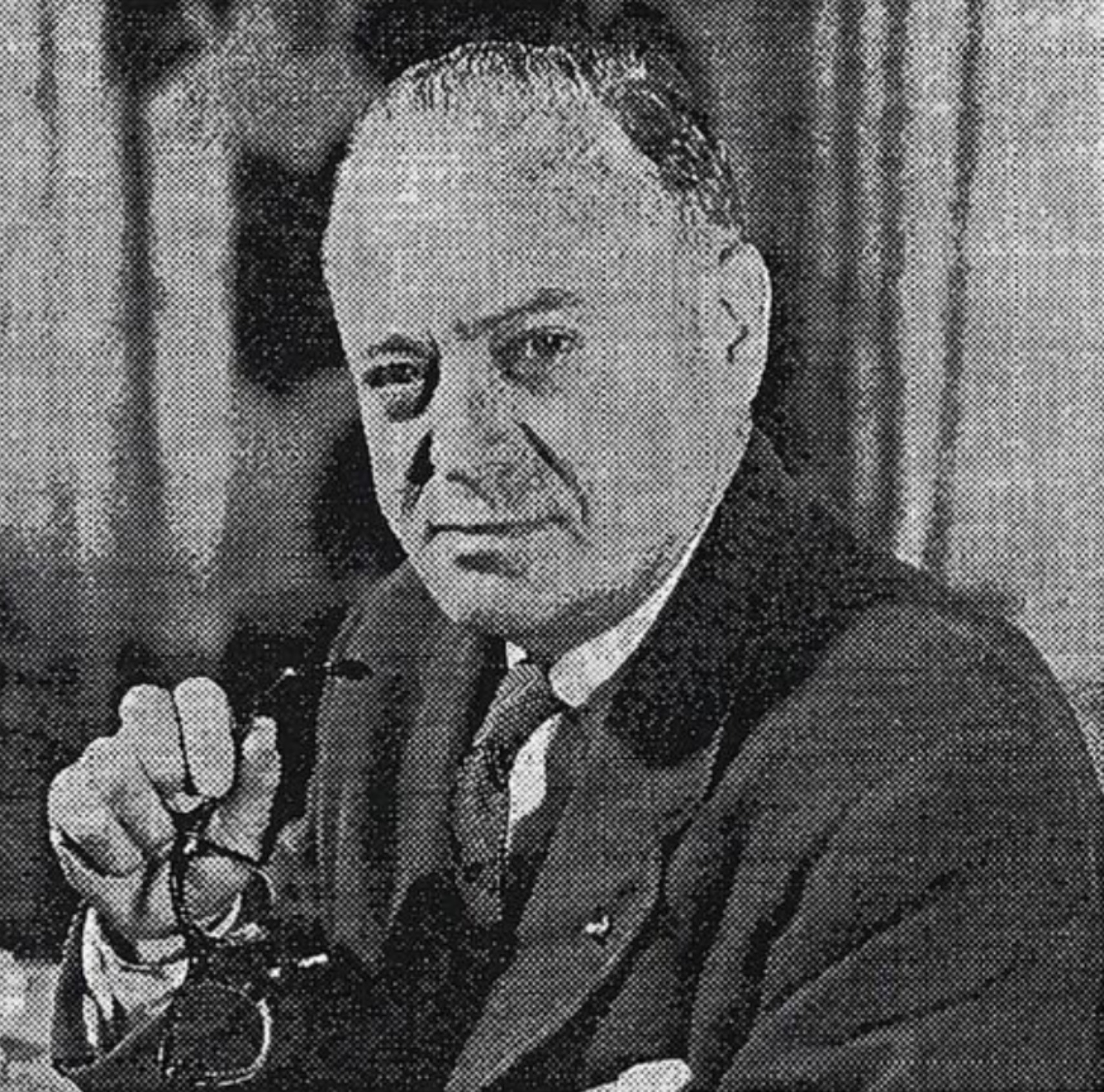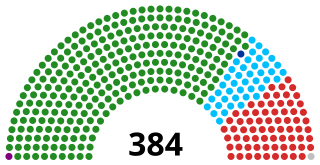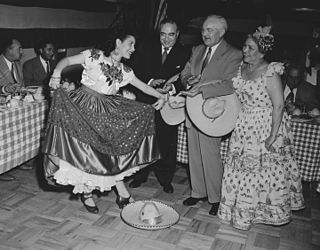
The Canadian federal election of 1953 was held on August 10 to elect members of the House of Commons of Canada of the 22nd Parliament of Canada. Prime Minister Louis St. Laurent led his Liberal Party of Canada to its fifth consecutive majority government, although the party lost seats to the other parties.

The United States Senate elections of 1952 was an election for the United States Senate which coincided with the election of Dwight D. Eisenhower to the presidency by a large margin. The Republicans took control of the senate by managing to make a net gain of two seats, which was reduced to one when Wayne Morse (R-OR) became an independent. The Republicans still held a majority after Morse's switch. This election was the second time in history that the party in power lost their majority and the Senate Majority Leader lost his own re-election bid.

The British Columbia general election of 1953 was the 24th general election in the Province of British Columbia, Canada. It was held to elect members of the Legislative Assembly of British Columbia. The election was called on April 10, 1953, and held on June 9, 1953. The new legislature met for the first time on September 15, 1953.

The Eighty-third United States Congress was a meeting of the legislative branch of the United States federal government, composed of the United States Senate and the United States House of Representatives. It met in Washington, DC from January 3, 1953, to January 3, 1955, during the final weeks of the second administration of U.S. President Harry S. Truman and the first two years of the first administration of U.S. President Dwight D. Eisenhower.

The 22nd Canadian Parliament was in session from November 12, 1953, until April 12, 1957. The membership was set by the 1953 federal election on August 10, 1953, and it changed only somewhat due to resignations and by-elections until it was dissolved prior to the 1957 election.

The National Assembly of Tanzania and the President of the United Republic make up the Parliament of Tanzania. The current Speaker of the National Assembly is Job Ndugai, who presides over a unicameral assembly of 393 members.
The Barnsley by-election, 1953 was a by-election held on 31 March 1953 for the British House of Commons constituency of Barnsley in the West Riding of Yorkshire.

A senatorial election in the Philippines was held on November 8, 1955. This was a midterm election, the date when the winners took office falling halfway through President Ramon Magsaysay's four-year term.

The 1953 South Carolina 4th congressional district special election was held on June 2, 1953 to select a Representative for the 4th congressional district to serve out the remainder of the term for the 83rd Congress. The special election resulted from the death of Representative Joseph R. Bryson on March 10, 1953. Robert T. Ashmore emerged as the winner in a crowded field of Democrats.

Elections were held in the Australian state of Queensland on 7 March 1953 to elect the 75 members of the state's Legislative Assembly. The Labor government was seeking its eighth continuous term in office since the 1932 election. It was the first electoral test for Vince Gair, who had become Premier of Queensland 14 months earlier after the death of Ned Hanlon.

Presidential, legislative and local elections were held on November 10, 1953 in the Philippines. Incumbent President Elpidio Quirino lost his opportunity to get a second full term as President of the Philippines to former Defense Secretary Ramon Magsaysay. His running mate, Senator Jose Yulo lost to Senator Carlos P. Garcia. Vice President Fernando Lopez did not run for re-election. This was the first time that an elected president did not come from the Senate.

The 1953 election for Mayor of Los Angeles took place on April 7, 1953, with a run-off election on May 26, 1953. Incumbent Fletcher Bowron was defeated by Norris Poulson.
The 1953 Sunderland South by-election was held on 13 May 1953. It was held due to the death of the Labour MP Richard Ewart. It was gained by the Conservative candidate Paul Williams who had unsuccessfully contested the seat in the 1951 general election. It was the first time since 1924 that an incumbent government had gained a seat from the opposition in a by-election. The gain was held at the 1955 general election.

The 169th New York State Legislature, consisting of the New York State Senate and the New York State Assembly, met from January 7, 1953, to June 10, 1954, during the eleventh and twelfth years of Thomas E. Dewey's governorship, in Albany.
The 1953 North Down by-election was held on 15 April 1953. It was held due to the incumbent Ulster Unionist Party MP, Walter Smiles, dying in the sinking of the MV Princess Victoria off Larne Lough, in the same storm which caused the North Sea flood of 1953. It was retained by his daughter, Patricia Ford, who was unopposed when she stood as the Unionist candidate. She became the first woman to sit as an Ulster Unionist MP but she stood down in the 1955 General Election.
Elections to Liverpool City Council were held on Thursday, 10 May 1956.
Elections to Liverpool City Council were held on Thursday 12 May 1955. After the election, the composition of the council was:
Elections to Liverpool City Council were held on 7 May 1953.

Philadelphia's municipal election of November 3, 1953, was the second held under the city charter of 1951 and represented the first test of the Democratic city government of Mayor Joseph S. Clark Jr. In the 1951 election, the voters had elected a Democratic mayor for the first time in 67 years, breaking the Republican hold on political power in the city. They had also elected a majority-Democratic City Council along with Democrats for district attorney and other citywide offices. In 1953, the voters had the chance to continue the Democratic trend or to block it in the election for City Controller, Register of Wills, and various judges and magistrates. On election day, the Republican organization recovered from their 1951 losses, electing all their candidates citywide. Republicans celebrated the victory, but subsequent Democratic triumphs in the 1955 and 1959 elections made the 1953 result more of an aberration than a true comeback for the once-powerful Philadelphia Republican machine.












